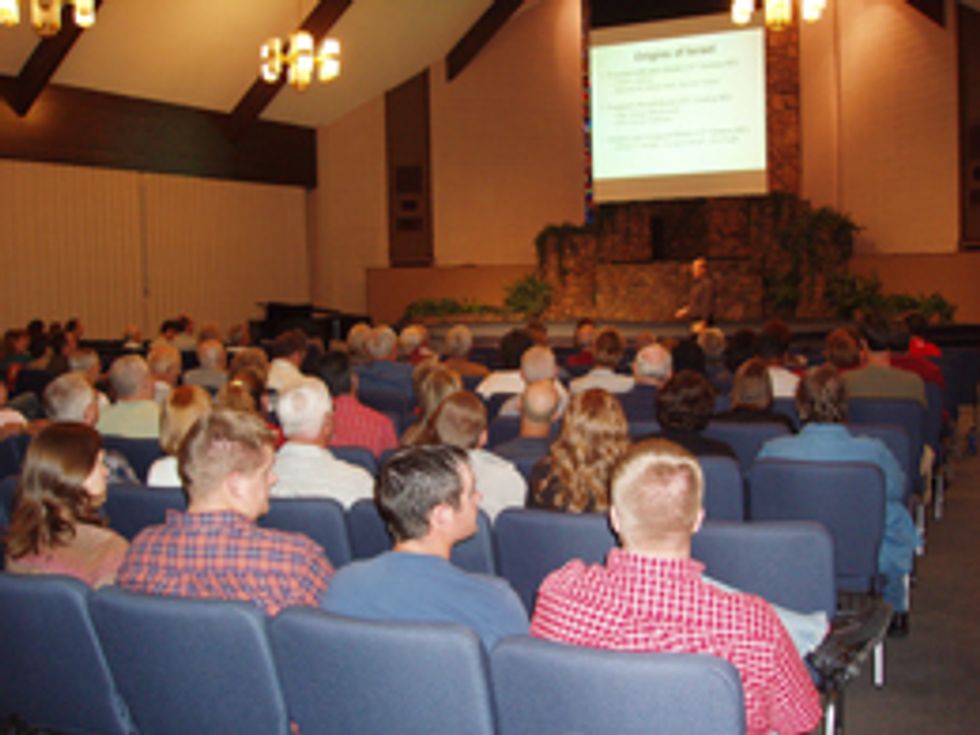Move in day is drawing nearer and freshman everywhere are mentally preparing themselves to live in a new place, with new people, and have new experiences. It's an exciting time in everyone's life; the freedom that you once longed for is now in your grasp. But in the same way, every person is different, so is every college.
The problem with this being that when freshmen begin to picture their new life at school they often pull from a preexisting mold of what we have been told our entire lives was "the college experience." I hate to break it to you but Christian colleges are anything but typical. So here are a few things to expect at a Christian college.
1) Open Hours In Dorms
So on a typical college campus you guys and girls share dorm buildings and sometimes even dorm rooms, but on a Christian College campus, guys and girls have separate dorms (for obvious reasons). That being said, there are certain hours and certain days that guys are allowed in girls dorms and vice versa. So say so-long to hanging out with friends late into the night if you have friends of the other sex. But on the plus side, your roommate can't have their friends over late the night before your first big exam.
2) No Drinking or Smoking
Obviously, underage drinking and smoking, in general, is frowned upon at all colleges, but Christian Colleges take it to the next level. Some even have dry campuses to ensure that students don't misuse the substances.
Most of the time you won't see a wild party running rampant through a Christian college campus, or even students smoking on the college green.
3) Everyone Can Quote VeggieTales
Ya, you read that right. Christian kids love those awkward looking vegetables without arms. (Personally I don't see the appeal, but that's just me.)
Walking around campus you'll hear them quoting the various movies left and right. Beware that all it takes is just one phrase and the whole conversation flips to singing some of those "Silly Songs with Larry."
4) Chapel is Probably Mandatory
Christian or not, if you are attending a Christian institution then you will have to go to at least one chapel service (sometimes even more, like say 22). It's a good time to sit back and let someone give a message that they're passionate about, but not every speaker will make a connection with you are even be good at public speaking. You just have to sit through those rough services and maybe try to get something out of it.
All in all, Chapel isn't a bad time. It's a great break from the hectic life of a college student. And if Chapel doesn't end up being "your thing," then it's a great time to sit back and let your brain rest in between classes.
5) Required Bible Classes
You'll have your standard science, math, history, and English Gen-Eds but at a Christian school, you'll also have your religion Gen-Eds. Usually, intro level Bible courses, they are actually pretty helpful when it comes to understanding what Christians believe and why there are so many different Protestant denominations.
Much like a Philosophy or Ethics class, Bible courses can be dense and be challenging at times; the Bible is a large, historic, and sacred book, so there is plenty to learn and interpret.
6) Spontaneous Worship Nights in the Lounge
At a state school or large University you might walk into the lounge and find some people just sitting around or planning a party or watching T.V., but at a Christian college, it is not an uncommon sight to walk in and see a Bible study of spontaneous worship night.
It's different, but it's a great way to take a break from homework and refocus on what matters in life. Sure, it can be a little too loud at times and make it impossible to actually do homework, but any excuse works, right?
7) Professors Will Pray in Class
It's no big surprise that Christian colleges tend to hire Christian professors, which means that they are willing to speak about God, Jesus, religion, and faith in the classroom. In fact, many will start their class off with a quick prayer for the class, the campus, and any other specific needs of those in the classroom.
Not only do the professors get to know their students on a deeper level, but the students feel like they really matter to the professor; like they are more than just another name on an attendance list.























